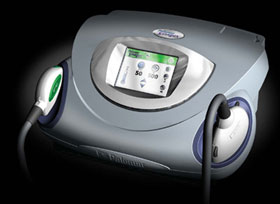Planning Ahead For Equipment Failures
 It's inevitable. At some point your cosmetic laser or IPL will go on the fritz. Then what?
It's inevitable. At some point your cosmetic laser or IPL will go on the fritz. Then what?
About half of the people I speak to every day are medical spa owners. The nature of my job pretty much implies that most people calling me are in some type of situation they would consider an emergency. Most have just one cosmetic laser or IPL, a schedule full of customers, and no time. A week of searching for a repair company or technician can put a medical spa in a very bad situation. Unexpected service expenses are not so... they should be expected, but they are ignored.
How does one prepare for such unforeseen expenses as the need for a laser cavity rebuild, a power supply repair, or laser rod resurface- all repairs that can result in at least a week of downtime? This problem can best be remedied at the time of purchase, but most of you are far beyond this point. There are few options, but there are options.
The very best option in contingency planning for unexpected repairs is to warranty your devices. This is best done when purchasing your new or used laser- new lasers should come with a minimum 12 month warranty, and you should never purchase a used laser from a company that cannot offer at least a 6 month warranty after purchase. Many dealers and third party service companies now offer warranties on a wide variety of laser makes and models, but to know who offers what you may have to ask around. Some of these third party warranties offer more for the money than the original equipment manufacturer warranty, but come with the caveat that there are parts that may not be readily available at all times.
Another option to consider, even if you have a warranty, is a backup unit or rental. If you can only afford one laser, teaming up with local colleagues is one way to alleviate this problem. If you have a Cutera Xeo, for example, you can seek out colleagues in your area who also use the Cutera Xeo and together purchase a standby unit that is only used in case of emergencies. You might also ask your warranty company if they are capable of providing loaner units while yours is in repair.
The third option to consider is leasing your unit. Under a lease, you are not directly responsible for all the maintenance. In case of emergency, the leasing company should be able to provide a loaner or temporary unit. I am not referring to a lease as in taking out a loan from a bank to pay for what will be your laser- I mean leasing the laser from an owner who will handle all the maintenance should anything go wrong. These kinds of arrangements do include clauses where you may be responsible for negligence, equipment abuse, and misuse, but most lasers fail because of normal wear and tear.
Of course, none of these options will alleviate every emergency situation. The best course of action may be a combination of these options, or all three. Even though there is no catch all, HAVING a plan, or at least being aware of the possibility of an unforeseen expense is more than ignoring the possibility in it's entirety.
Have a question? Please leave a comment.